
Culture
18:57, 26-Sep-2017
Bulgarian village goes Chinese in yogurt craze
By CGTN
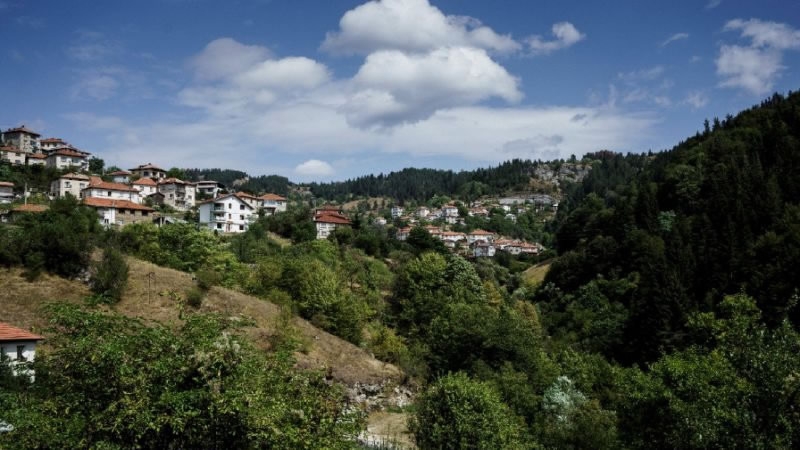
The Bulgarian villagers hunker over their books, struggling with their Mandarin words and characters. But they are not going to China – the Middle Kingdom is coming to them. Because of yogurt.
"It's difficult. You have to be quite tough not to give up," says pensioner Tsvetka Radkova, 66, as she puffs and pants in the classroom in the village of Momchilovtsi in southern Bulgaria.
But her daughter Veselina, 37, accompanied in the lessons by her 9-year-old little girl, trots out whole sentences in Chinese, to the cheers of her classmates.
Few Europeans, and not many Bulgarians for that matter, have heard of Momchilovtsi, perched high on the slopes of the Rhodope Mountains in southeastern Europe near the border with Greece.
But in China, Momchilovtsi conjures up images of mystery, wonder and longevity, having given its name to a kind of drinking yogurt that is all the rage for Chinese consumers.
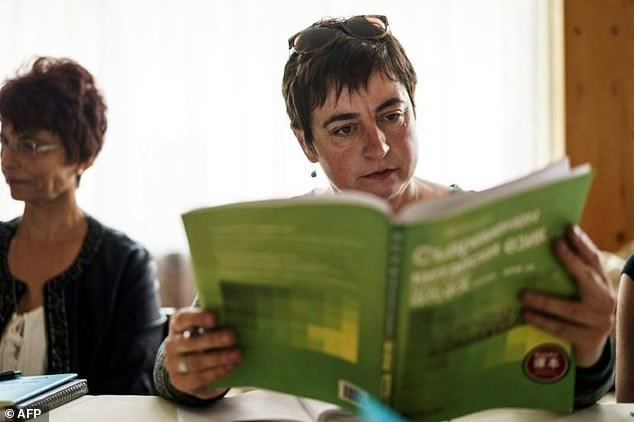
AFP Photo
AFP Photo
This summer Momchilovtsi played host to hundreds of Chinese visitors attending the village's third Chinese-Bulgarian yogurt festival.
Signs in Chinese are everywhere, directing visitors to the village hall for lectures on yogurt's prodigious health benefits or to yogurt and cheese tastings.
Children run around chirping "Ni Hao" ("Hello" in Chinese) and giving out festival brochures and village maps in Bulgarian, Chinese and English.
A beauty pageant on the festival's second day picked the new "Yogurt Queen" to adorn the Momchilovtsi packaging.
"There's two things every Chinese knows about Bulgaria – yogurt and roses," said one visitor, Lei Lin from Shanghai.
Village of longevity
The people of Momchilovtsi have been used to the sight of Chinese visitors ever since Chinese firm Bright Dairy in 2009 took back home the bacteria found in the local yogurt.
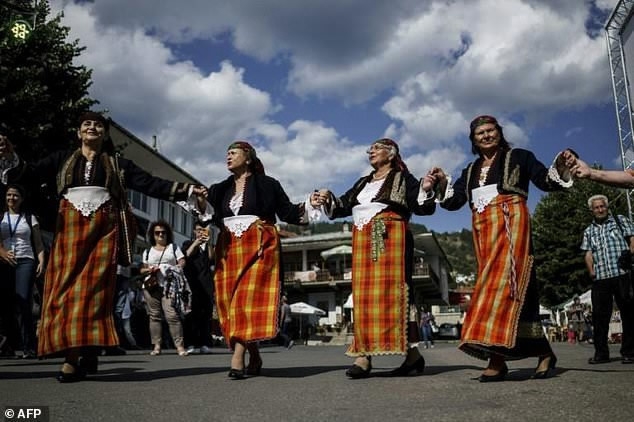
AFP Photo
AFP Photo
Crucially, the strain enabled Bright to develop for Chinese consumers drinking yogurt – drinkable with a straw, so easier to consume than the thicker stuff – that doesn't need to be chilled.
But Bright didn't forget its roots, branding its product "Momchilovtsi," its label featuring a Bulgarian maiden in traditional dress and cultivating links with the village.
Known in Chinese by the shorter name "Mosili’an," it's the top seller in this booming sector, on sale in most supermarkets and its adverts a common sight on bus stops and on television.
Its popularity has been helped by the contaminated milk powder scandal in China in 2008 pushing many consumers towards brands seen as international or traditional and therefore safer.
With its slogan "The miraculous secret of the village where people live a long life – Momchilovtsi," sales were 6 billion yuan (765 million euros, 910 million US dollars) last year, a Bright spokesman told AFP.
"Momchilovtsi has been famous as 'the village of longevity' because of the high number of centenarians living here," Pan Jianjun, the spokesman, said on the sidelines of the festival.
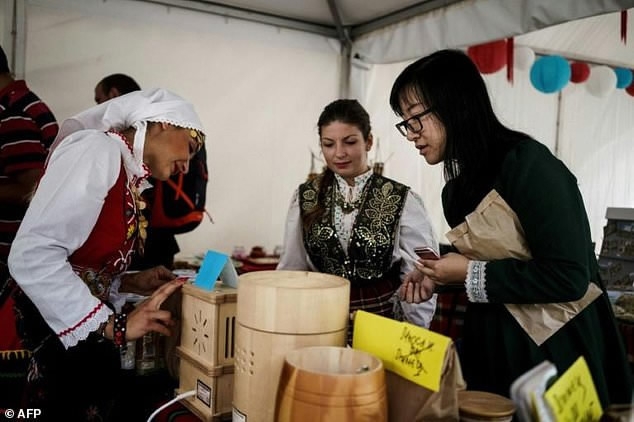
AFP Photo
AFP Photo
Indeed, at least three participants in the language course – for which 40 locals have enrolled – told AFP they had family members who had lived to be over 100.
"Our research showed that one of the secrets of this longevity is the local yogurt," Pan said.
Long and winding road
The 1,200 inhabitants of Momchilovtsi already host about 1,000 Chinese tourists annually out of a total of 5,000-6,000 visitors, mayor Siyka Surkova told AFP.
"The numbers are growing every year and this is only normal considering the huge advertising campaign for the yogurt in China that also benefits us," she added.
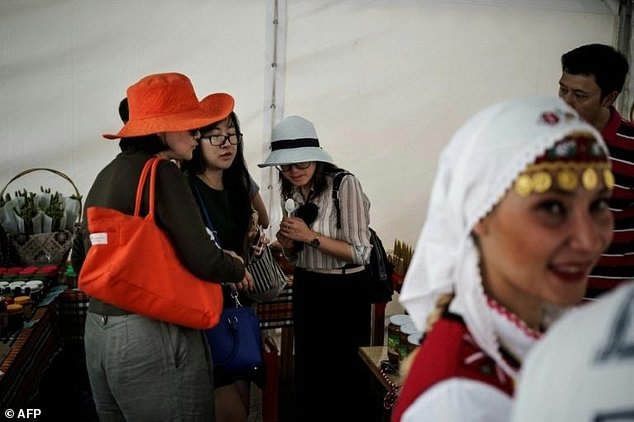
AFP Photo
AFP Photo
In 2014, the Chinese version of reality TV show "Survivor" was set in Momchilovtsi, with seven contestants thrown in with a local family armed only with a Chinese-Bulgarian dictionary.
But with just 18,500 Chinese visitors last year, Bulgaria is seriously lagging in the Europe-wide drive to attract Chinese tourists.
Direct flights between the two countries are only but a dream, experts said.
Visitors to Momchilovtsi have to take an internal flight within Europe to Sofia or Plovdiv. And from there it's a long and winding journey of several hours up to the village – but worth it.
Source(s): AFP

SITEMAP
Copyright © 2018 CGTN. Beijing ICP prepared NO.16065310-3
Copyright © 2018 CGTN. Beijing ICP prepared NO.16065310-3